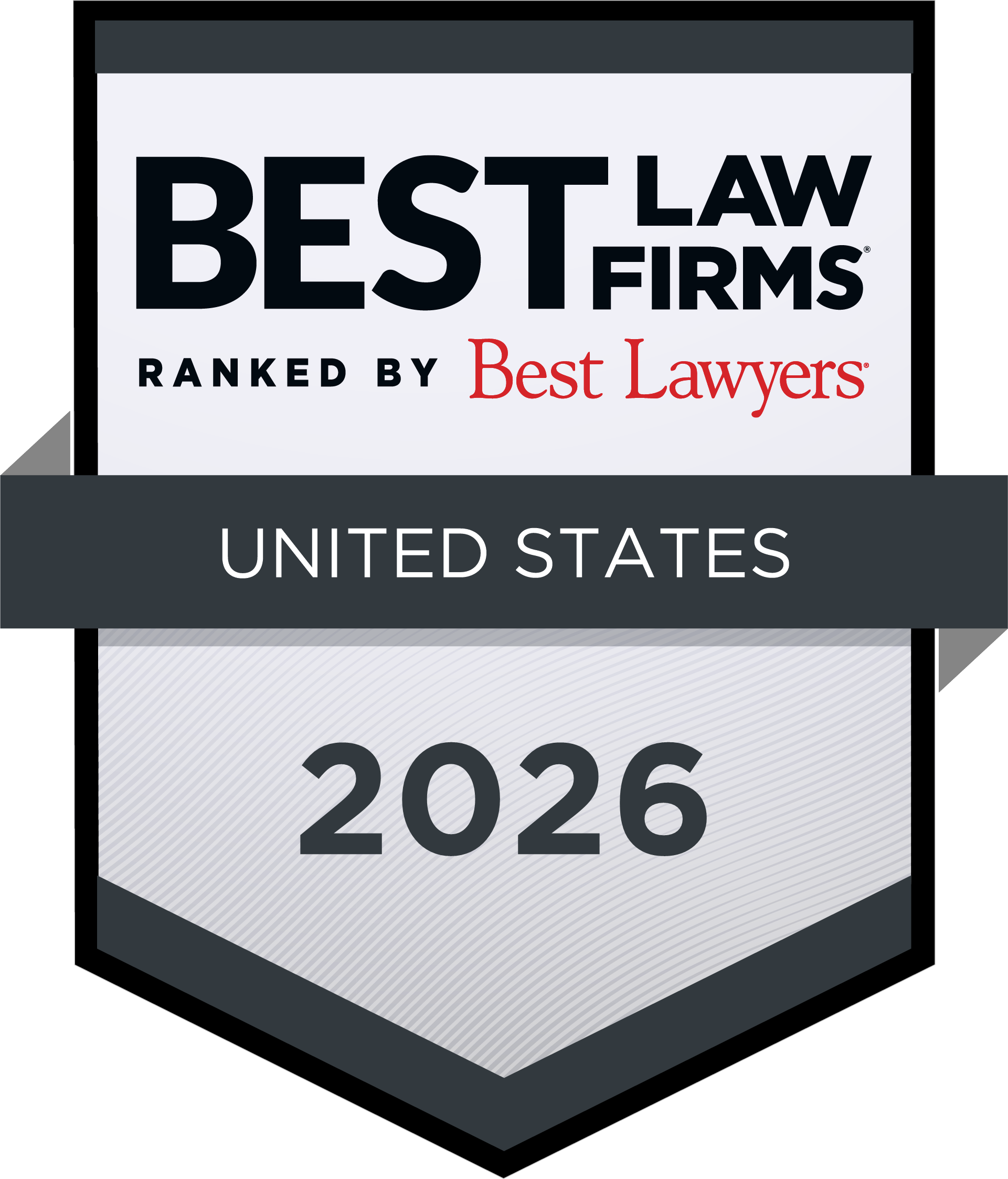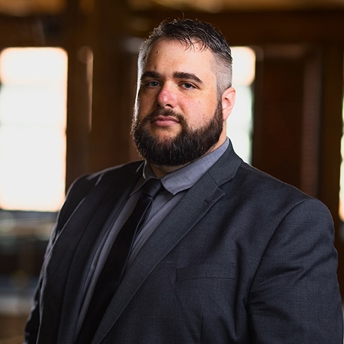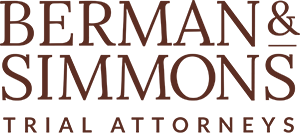Unlike criminal court, where guilt must be proven beyond a reasonable doubt, in civil court, the evidence must suggest to the jury that the defendant is more likely than no responsible for causing your accident and subsequent injuries.
Our property injury attorneys will be responsible for conducting a thorough investigation that provides the evidence we need to win. Some examples of such evidence could include:
- Photos of your injuries
- Police reports
- Property records and lease agreements
- Safety inspection records
- Photos of unsafe conditions on the property
- Maintenance records
- Cell phone records
- Communication exchanges
- Copies of insurance policies
- Medical records
- Building code violation records
- Reports from accident reconstructionists
- Expert testimony
- Witness statements
- Personal journal entries
- Personnel records
- Complaint records
- Video of the accident
Many premises liability victims wonder whether their injuries are severe enough to pursue their case. However, as can be seen, the type of injury you suffered does not determine whether you have grounds for a property injury claim. Instead, we must show how substantially your injuries have affected your life. The elements of negligence must be met for your claim to be successful. These elements include:
- Duty of care
- Breach of duty
- Causation
- Damages
This means the defendant must have had an obligation to maintain the safety of the premises and that of their invited guests and patrons. They must have breached this duty in some way by inaction or being irresponsible. Their actions must have been the cause of your injuries, and these injuries or the accident itself must have had a significant impact on your life.
While the type of injury you are dealing with does not determine whether you have the right to sue, there are some types of injuries we see more often in Maine premises liability claims. Some examples include:
- Soft tissue injuries, including whiplash, muscle sprains and strains, and repetitive stress injuries
- Emotional trauma, including anxiety, depression, and post-traumatic stress disorder (PTSD)
- Compound fractures and broken bones
- Spinal cord injuries, including back injuries, herniated discs, paralysis, and neck injuries
- Traumatic brain injuries, including second impact syndrome, concussion, and penetrating brain injuries
- Third-degree burns, including road rash
If you are coping with another type of injury not listed above, do not worry. You may still have the right to compensation if our premises liability attorneys can show the property owner or other third party is at fault for the injuries you sustained. The best way to find out what is next for your case is to contact our team to explore your legal options further.
Fault for Your Premises Liability Injuries and Damages
After suffering critical injuries on someone else’s property, you may believe it is obvious who the liable party is. After all, you probably assume you are filing a claim against the owner of the property. However, this is not always the case. Although property owners are often held accountable for injuries that occur on their premises, third parties could share the blame as well.
For example, if a property owner was notified that the banister in their apartment building was broken, they might hire a professional to come in and install a new banister. However, if the professional failed to use quality parts or knowingly installed defective parts to save money, you may have grounds for a claim against the stair repair.
Our premises liability lawyers will scrutinize the property owner and any third parties to determine whether their negligence contributed to your injuries. Our investigation will identify all parties that contributed to your injury so they can be held accountable to the fullest extent of the law.
Maine Property Owner Culpability Exclusions
There are several instances in which property owners may not be 100% liable for the Injuries victims sustain. For example, property owners only have an obligation to the safety of their invited guests. If someone is trespassing or committing a crime on their property, property owners in Maine should not be held accountable for the victim’s injuries.
Additionally, if a property owner takes steps to warn guests of potentially hazardous conditions and injuries occur, the property owner may not be fully liable for the victim’s damages. For example, say if you were grabbing a quick coffee before work on a cold January morning, and the coffee shop did not take time to salt the icy ground in front of the door, you may have grounds for a premises liability claim.
However, if the coffee shop placed a caution sign next to the icy ground, your property injury lawyer would have more difficulty pursuing a claim against the coffee shop. This is commonly referred to as the “open and obvious doctrine.” If hazardous conditions are present, but property owners take the time to make these dangers obvious to guests and patrons, they may not be held 100% liable for the victim’s injuries.
Our Property Negligence Attorneys Will Protect You From Unfair Shared Liability Claims
Maine follows modified comparative negligence laws under Title 14, §156. So even if you are partially responsible for causing your injuries in a premises liability accident, you may still have the right to compensation. The threshold is set at 49%. As long as your portion of blame is not greater than 49%, you can still recover some of your losses. However, expect your settlement to be reduced in proportion to your liability.
For example, if you did not take care to cross the icy ground into the coffee shop carefully and broke your leg, the judge might find you 35% liable for your injuries. If this happens and you were awarded $1 million, your settlement would be reduced by 35%. This would leave you with $650,000. This is still a sizable settlement, but you lost out on $350,000 by sharing the blame. Our property injury lawyers will work tirelessly to ensure liability is accurately evaluated. This way, you are protected against unjust accusations of shared fault.
Recoverable Damages in Maine Property Negligence Cases
Our premises liability attorneys are dedicated to helping our clients recover total compensation for their damages. Not only are you entitled to reimbursement for your out-of-pocket and monetary losses, but you should also be repaid for every single way your life has been turned upside down by the owner’s property negligence.
Collectively, these are known as compensatory damages. They can be broken up into two separate categories known as economic and non-economic damages. Economic damages account for financial losses, while non-economic damages describe your emotional trauma and the way your life has been affected. Examples of damages our property negligence attorneys could recoup in your lawsuit or insurance claim include:
- Personal property damages
- Chronic pain
- Reduced quality of life
- Emotional distress
- Lost income
- Wage-related damages
- Medical bills
- Future healthcare costs
- Loss of consortium
Understanding Premises Liability Laws in Maine
Premises liability laws are designed to protect individuals who are injured on someone else's property due to unsafe conditions. In Maine, property owners have a legal obligation to maintain their premises and ensure the safety of their guests. Understanding these laws is crucial if you or a loved one has been injured.
The types of cases we handle at Berman & Simmons include:
- Slip and Falls: Injuries that occur due to wet floors, uneven surfaces, or obstacles can lead to serious accidents.
- Dog Bites: Owners are responsible for ensuring their pets do not pose a threat to others on their property.
- Inadequate Security: If a property owner fails to provide proper security measures, they may be liable for injuries resulting from criminal activity.
- Unsafe Conditions: Hazards such as poor lighting, broken railings, or lack of maintenance can all contribute to accidents.
If you've been injured due to the negligence of a property owner, knowing your rights is essential. Our experienced team at Berman & Simmons is here to guide you through the legal process and help secure the compensation you deserve. We offer personalized consultations to discuss your specific situation and outline potential legal strategies.
Understanding Premises Liability: Your Rights and Responsibilities
Premises liability law can be complex, but it is essential for protecting your rights as a visitor to someone else's property. Understanding what constitutes premises liability can help you identify whether you have a valid claim. Property owners are responsible for maintaining a safe environment for their guests, which means they must take reasonable steps to fix unsafe conditions and warn visitors of potential hazards.
If you've been injured on someone else's property, it's critical to know your rights. Here are some key aspects to consider:
- Types of Hazards: Slippery floors, uneven walkways, inadequate lighting, and poorly maintained staircases can all lead to accidents that fall under premises liability.
- Visitor Status: Your legal rights may vary depending on whether you are an invitee, licensee, or trespasser. Understanding your classification will help determine the property owner's level of responsibility.
- Documentation is Key: If you experience an accident, gathering evidence such as photographs, witness statements, and medical records can significantly strengthen your case.
- Statute of Limitations: Be aware of the time limits for filing a premises liability claim in Maine. Delaying may result in losing your right to compensation.
At Berman & Simmons, our experienced team is ready to guide you through each step of the legal process, ensuring you understand your rights and options. We are dedicated to helping you achieve the compensation you deserve. Contact us today for a free consultation!
Maine Premises Liability FAQ
We understand how complex the personal injury claims process can be. Whether you are negotiating with the insurance company or working through the premises liability accident investigation process, you may have many unanswered questions.
With that in mind, we have answered some of the most frequently asked questions surrounding premises liability laws and claims in Maine below. If you have additional questions we did not cover here, do not hesitate to contact our property negligence attorneys to discuss your specific needs in greater detail.
How long do I have to file my premises liability claim?
Man has some of the most victim-friendly personal injury statutes of limitations in the United States. Under Title 23, §3655, premises liability and other personal injury victims have as much as six years from the date of the accident to file their claim. The length of time you have to file your lawsuit can vary depending on the age of the victim and when you were diagnosed with injuries related to your accident.
If a minor was injured in a premises liability accident, the statute of limitations would not begin until they reach the age of 18 and will not expire until six years later. If your injuries were not diagnosed until a later date, the statute of limitations generally would not begin until the date of your diagnosis and run out six years later. If you are unsure how much longer you have to file your lawsuit, do not hesitate to contact our premises liability lawyers to get the clarity you need.
Should I accept a settlement offer from the insurance company?
It is impossible to say whether you should accept a settlement offer from the insurance company without having reviewed the specific circumstances of your premises liability case. Most times, insurance companies make offers that are far less than your damages will be worth. The insurance company wants to protect its financial interest at all costs and will often attempt to do so by making quick but very low settlement offers.
You might be tempted to accept a settlement offer from the insurance company because you need money as soon as possible. However, if your claim is worth more, waiting for your premises liability lawyer to examine the offer may be well-advised. This may be one of the best opportunities for you to protect your right to compensation. If the insurance company’s settlement offer is substantially less than your claim is worse, we can renegotiate or prepare to bring your case to trial.
How much does it cost to hire a premises liability attorney in Maine?
Most premises liability law firms will be willing to work with injury victims on contingency. You will never be expected to put a retainer down like you want if you were hiring a criminal defense or family law attorney. Instead, we cover the costs of pursuing your premises liability lawsuit, including deposition fees, court filing costs, and the amount we will need to spend to hire experts to analyze the evidence and testify on your behalf.
Then, when we win your premises liability claim, a portion of your winnings will go toward your attorney’s fees. We will discuss these fees in depth before we sign your contingency agreement. It is important to remember that if we do not win your case, you will not have to pay anything for our services. This makes hiring our personal injury attorneys in Maine one of the lowest-risk ways to pursue justice for your injuries and damages.


 Susan A. Faunce Managing Director, Shareholder
Susan A. Faunce Managing Director, Shareholder Travis M. Brennan Attorney, Shareholder
Travis M. Brennan Attorney, Shareholder Timothy M. Kenlan Attorney, Shareholder
Timothy M. Kenlan Attorney, Shareholder Elizabeth A. Kayatta Attorney, Shareholder
Elizabeth A. Kayatta Attorney, Shareholder Charles P. Hehmeyer Attorney, Shareholder
Charles P. Hehmeyer Attorney, Shareholder Christopher C. Boots Attorney, Shareholder
Christopher C. Boots Attorney, Shareholder Miriam A. Johnson Attorney
Miriam A. Johnson Attorney Joseph G. Gousse Attorney
Joseph G. Gousse Attorney














